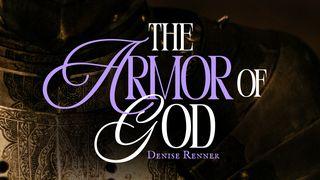Men After AbortionSample

Confronting Guilt and Shame
We briefly examined Adam’s anger in the Garden on Day #2. Now, let’s examine guilt and shame.
Guilt and shame are similar but not identical. Both reveal remorse or regret, usually for behavior or an event. Guilt results from something good we left undone or something bad we did—something as simple as forgetting to call our Mother on her birthday. Guilt.
Shame, on the other hand, attacks our self-esteem. Shame is likely what the evil king felt in the book of Daniel when told his days were numbered, his reign was over, and he was “weighed in the balances and found wanting” (Dan 5:27). Here are some simple distinctions.
Guilt says, “I did a stupid thing,” or “I did a bad job,” or “I missed an opportunity.” Shame says, “I’m such a moron,” or “I am a horrible mess” or “I’m such a loser.”
After Adam and Eve realized they had disobeyed, they sensed shame, they covered up, and they hid from God. Shame, with its accompanying notion that “there’s something wrong with me,” prompts us to hide, to cover up. We fear the judgmental eyes of others. Fig leaves are an attempt to conceal our true state. Masks and pretense are designed to cover an ugly reality. God crashed Adam’s masquerade party by inquiring, “Where are you?”
In response, Adam said, “I was afraid because I was naked, so I hid.” (Gen 3:10)
I believe that Adam’s words accurately capture not only his feelings, but also reveal the Great Physician’s diagnosis of “the human condition.” The fear that our weakness will be seen produces shame, and so we perform and pretend.
While this narrative (Gen 2:25-3:13) may appear like a courtroom drama, it is clear that the Judge is merciful beyond measure. True, there were consequences for a poor choice, but there was forgiveness, grace, and mercy as well. By clothing Adam and Eve in animal skins, he covered their shame and restored them to the position of honor they were originally created for (Luke 15:22-24).
However, for this to happen, they first had to remove their fig leaves because the author of Hebrews reminds us “no creature is hidden from his sight, but all are naked and exposed to the eyes of him to whom we must give an account” (4:13). Obviously, this is difficult.
As we said, facing the facts that our feelings expose can be threatening. We may mourn the losses that affect us personally and discount the collateral damage our choices cause.
When we quit our self-promoting performances and abandon our dissembling strategies, we stand ready for the change, restoration, and promotion the Lord provides. As we examine the scene of the first crime against the Lord, we behold the gospel that forgives our sins, covers our shame, and restores us to our rightful place as stewards in the Garden.
After an abortion, both guilt and shame can continue to overshadow many of our thoughts and feelings about ourselves. Men often start to doubt themselves and question who they are to have been a part of the decision. These thoughts, left alone, can cloud our view of ourselves and prevent us from knowing and experiencing God’s love.
About this Plan

This seven-day Bible plan is designed to help men who are processing their abortion experience(s) and to find renewed identity and hope in God's love and forgiveness. This plan is written by Sean Quinlan, a Pastor and Male Client Advocate at Avail - a non-profit organization that exists to empower confident decisions and foster futures of hope for those facing unintended pregnancy, past and present.
More
We would like to thank Avail for providing this plan. For more information, please visit: https://www.availnyc.org/services-for-men?utm_source=youversion&utm_medium=referral&utm_content=men-english
Related Plans

Praying for the Global Work of Bible Translation

Romans 8: Life in Christ by the Spirit

The Armor of God

Where Are You, God? 30 First Encounters With God

Grieving With Purpose: A Journey Through Loss

The Quiet Ambition

Meeting God in His Word

1 Timothy - a Brief Insight

The Armor of God
